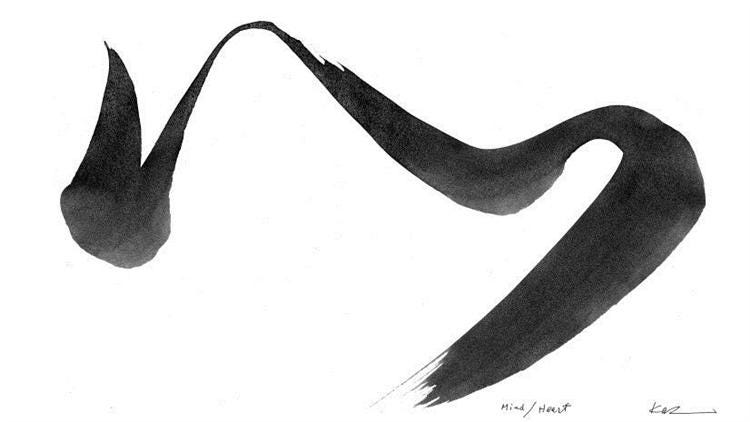imperfections
are we good for each other?
People’s gut instincts about their relationships are usually correct. The reason they might waver and stay in one that’s unhealthy is because they rationalize too much. On the other hand, you can know deep down that your relationship isn’t working but hold onto it anyway because your heart is all in it.
I wonder if the difference has to do with the different ways we fall in love. If you’re a rational lover, you recognize all the positive qualities in someone, all the ways in which they’re a good partner.
But a person’s imperfections can make them just as lovable as all the things they do right. Loving someone for their flaws probably stems from a desire to care for and nurture each other. This kind of love is primal. We first experienced it in the womb.
Some people see their shortcomings as liabilities. They think they’ll only find love after they’ve accomplished a major goal. They mistake admiration for love:
I was repulsed by David because I recognized his desperation. He wanted so badly to be loved, and he thought now it was going to happen. He thought being admired and being loved were the same thing—that it all came from the same well.
Hanna Halperin, I Could Live Here Forever
I’m wary of people who are too smooth. They’ve learned to iron out their imperfections, to approach dating like job interviews. They don’t understand that you’re supposed to get glimpses of their flaws. Because we all have them, and they’re what make us interesting and sometimes even more lovable.
The rational way of loving carries the risk of idealization. If you choose your partner based on a set of desirable characteristics, you might become disillusioned if one day they fail to meet your standards. The primal way of loving carries a risk of codependency. If the flaws become bigger problems, you might find yourself overcompensating for them and losing your sense of boundaries.
In both cases, I think it’s important not to over-index on the person when evaluating whether to stay in the relationship, but instead, to look at the relationship as a whole. Is it good? Is it nourishing?
I recently read Hanna Halperin’s novel I Could Live Here Forever. It’s about a young woman who gets into a relationship with a heroin addict. It’s a searing portrayal of how we fall in love and stay in love despite all the reasons we should leave. One of the characters posits:
A relationship isn’t supposed to make you happy. You find happiness on your own. A partner is there to support you and build with you. It seems as though you’re looking for some magic person who’s going to solve all your problems, but you have to do that yourself.
I think this is conflating two things. You can’t depend on a person to make you happy, but a relationship can and should. Otherwise, what’s the point of coming together?
No two people create the same chemistry. If you’re in a toxic relationship, it doesn’t necessarily mean your partner is a “bad person.” More likely, it means that your two sets of personalities, temperaments, flaws, and triggers don’t mesh well.
A small example: someone who is emotionally secure and a good communicator can have a relatively healthy relationship with someone who’s not good at communicating. But if both people are bad communicators or if one person is particularly sensitive, they will probably struggle a lot.
That doesn’t mean they can’t work on it. Compatibility—the measure by which we often judge whether we should be with someone or not—is often reduced to similarities: do we share the same hobbies, goals, temperaments? I think what compatibility is really about is how well two people come together under different circumstances, from the dreadfully mundane to the extraordinarily stressful. It’s like puzzle pieces. You have to be complementary, but you don’t have to be the same person.
Another mistaken view: compatibility doesn’t mean you never fight. There is always going to be some friction. I think one of the most attractive qualities is the ability to listen to feedback and adapt. Relationships shouldn’t feel too easy. Some people take the highly individualistic view that if being with someone requires even the slightest modification to their behavior, they should walk away because “I shouldn’t have to change myself for someone else, right?” There’s a world of difference between doing whatever someone tells you to do because you want to please them and recognizing the ways you can grow and become better.
When you look at couples who have been together a long time, they’re probably not the same people they were before they met. There are many ways in which they’ve influenced each other and grown and changed as a result. I think this is necessary in order for a relationship to survive. But you have to want to change. The choice has to be authentic. The prospect of change has to excite you.



I identify with falling prey to the pitfalls of the worst aspects of both the rational and primal ways of loving someone. One thing that helps me is to pay attention to how I feel after interacting with a person and log these events so that I can revisit them later. I find the exercise prevents idealization and helps keep me grounded in reality.